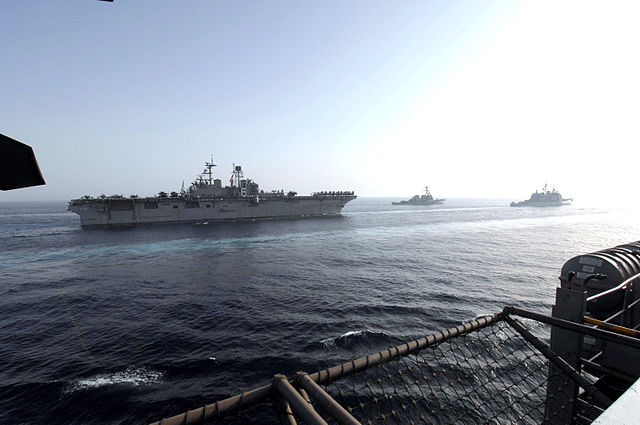South Korean authorities have intensified their investigation into three Chinese students accused of illegally filming U.S. military assets, including the nuclear-powered aircraft carrier USS Theodore Roosevelt. Officials allege the activity may have been part of a coordinated espionage operation directed by Chinese intelligence agencies.
The incident unfolded on June 25 when the USS Theodore Roosevelt docked at the Korea Fleet Command in Busan. The students reportedly deployed a drone to capture footage of the vessel, prompting swift action by South Korean military and police forces. One of the suspects was later identified as a model Communist Party member, having received recognition as an "excellent Communist Party member" at a Chinese university in May 2021.
"We are keeping a close eye on people involved in intelligence activities from countries such as China," a South Korean military official said.
Investigators believe the students acted under the direction of a Chinese intelligence agency. Forensic analysis of their mobile phones revealed concerning details, including contact information for Chinese public security officials and CCP newsletters. Authorities also discovered hundreds of photographs of South Korean and U.S. military facilities on their devices.
The investigation uncovered that the suspects had been gathering intelligence for an extended period. They reportedly conducted reconnaissance missions at the Korea Fleet Command in Busan as early as September 2022. In addition to the USS Theodore Roosevelt, the students are accused of filming the USS Springfield, a nuclear-powered submarine, and the aircraft carrier USS Nimitz during visits to Busan last year.
The arrests occurred just before South Korean President Yoon Suk Yeol was scheduled to board the USS Theodore Roosevelt. An alert soldier conducting security operations for the event spotted the drone, triggering a rapid response by the military and police. Although the presidential security plan was not compromised, investigators are exploring whether other classified information may have been leaked.
Authorities have charged the students with violating South Korea's Military Base and Facility Protection Act. If the investigation confirms that the actions were directed by Chinese intelligence, additional charges of treason could follow. A conviction for treason carries the possibility of life imprisonment.
The case has reignited debate in South Korea over the country's espionage laws, which currently limit charges of espionage to activities benefiting North Korea. This limitation means relatively light penalties for espionage involving other foreign nations. In October, lawmakers advanced a bill to broaden the scope of espionage laws to include foreign countries.
"For the sake of national interest, we must be alert to espionage activities not only from North Korea but also from foreign countries," an intelligence official stated, urging the bill's swift passage in the National Assembly.
The connection between one of the suspects and the CCP has heightened concerns about deliberate intelligence-gathering efforts by China. Investigators are probing whether individuals recognized for loyalty and competence by the CCP were specifically sent to South Korea for such missions.
The incident has attracted international attention. Inquiries have been sent to the Chinese foreign ministry, the Chinese embassy in Seoul, and U.S. Forces Korea. Beijing has yet to issue a public comment.
South Korea remains a critical ally of the United States, hosting 28,500 American troops as a deterrent against aggression. "We persistently pursued the case that could have easily ended as a minor crime, and it led to a full-scale investigation," a South Korean military official said.






